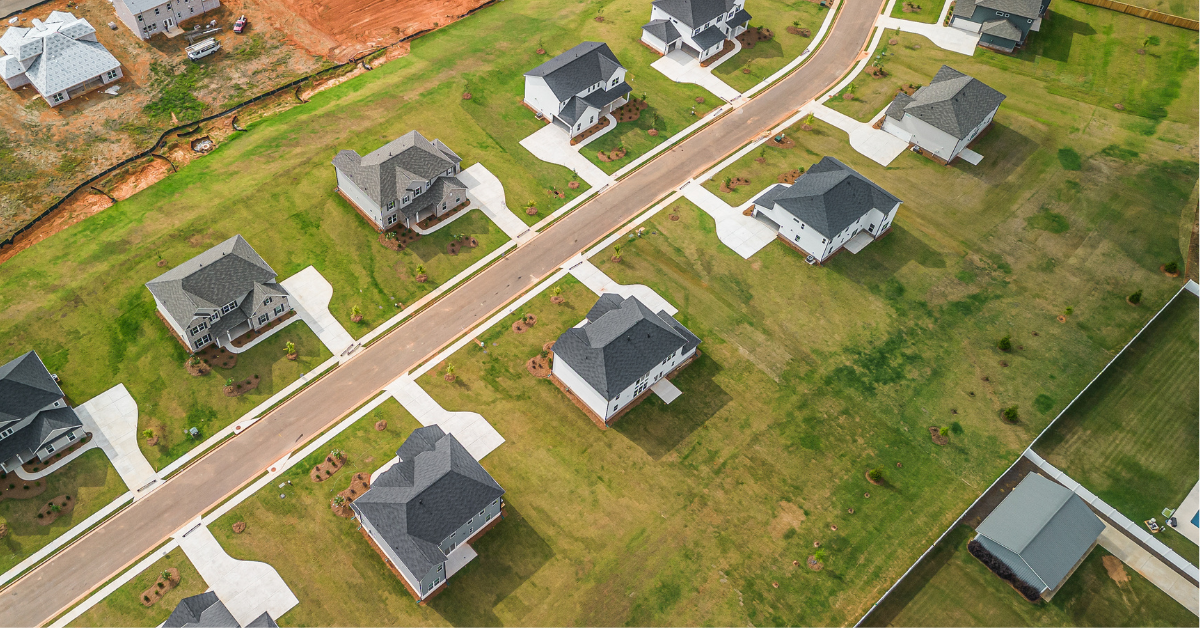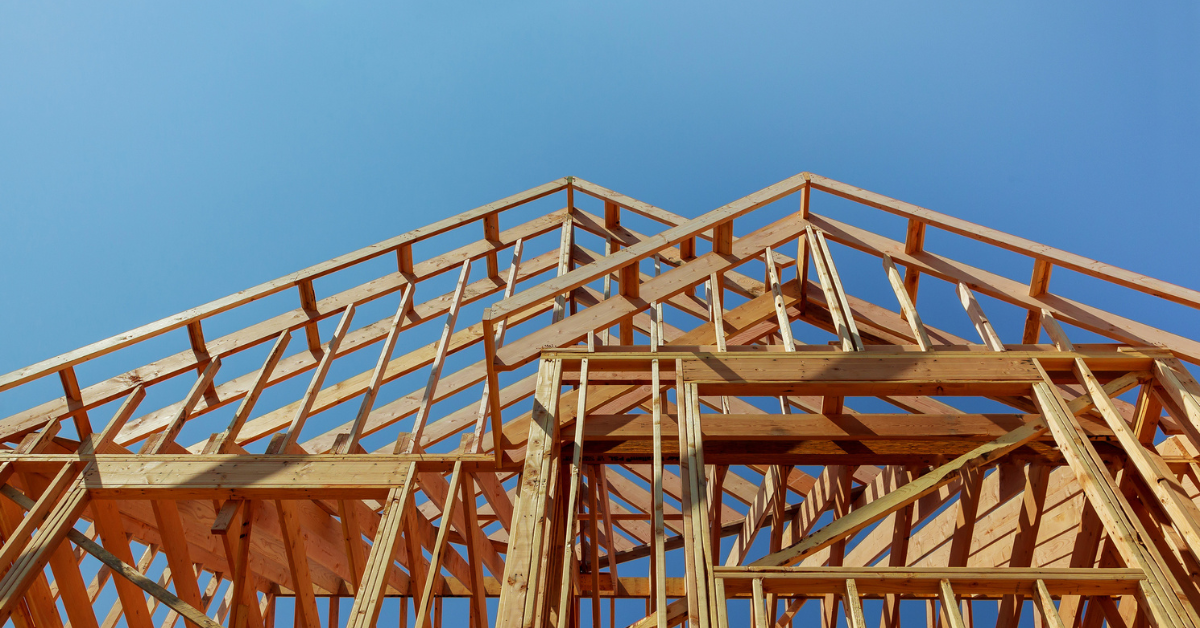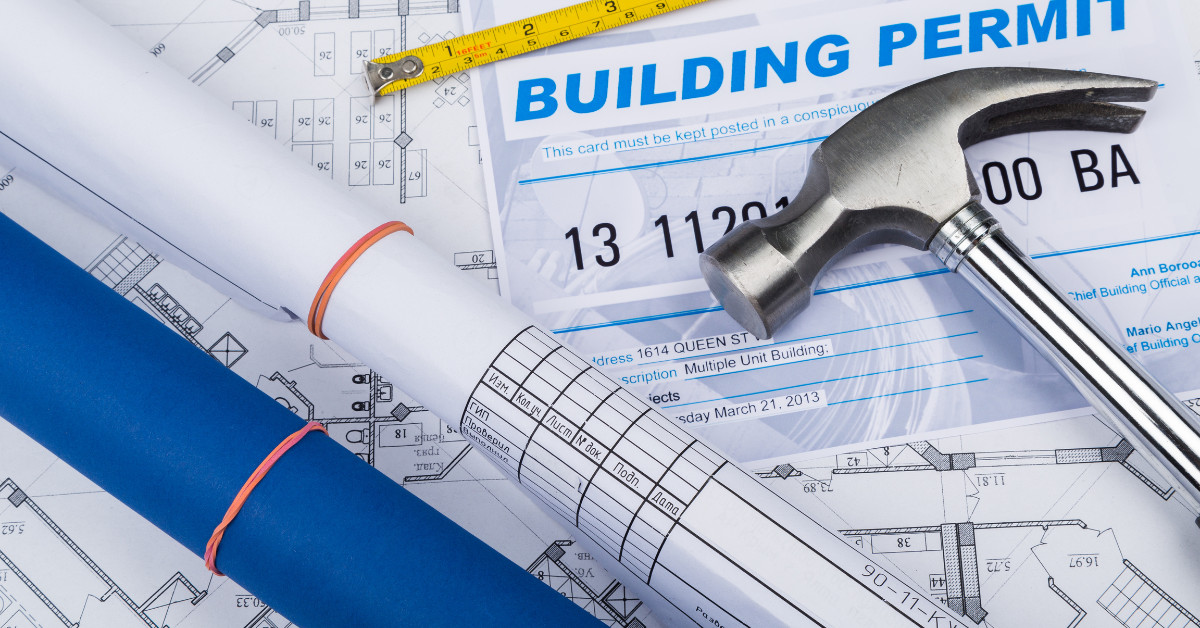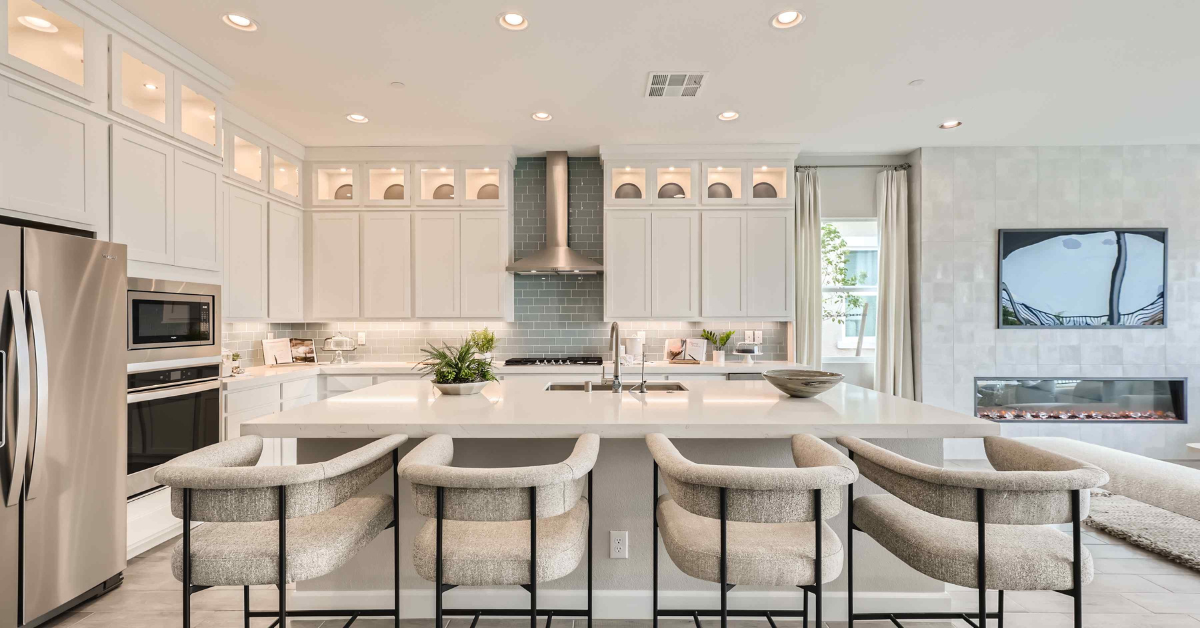Although the homebuying process is relatively complicated, it's nothing compared to what it takes to build a new home from scratch. Everything from the land on which it sits to the appliances in the kitchen costs money, and the entire timeline can take a matter of months or years, depending on the scope of the project.
So, before pouring the foundation or drawing up architectural plans, here are some top tips you need to estimate new home construction costs.
How to Estimate Cost of New Home Construction
As a rule, the more you plan for a project, the easier it is to follow through with it and avoid delays. So, you must consider every cost to build a new home, as well as the time it takes to complete each step. Overall, the longer you spend on planning and estimation, the easier it is to get the job done on time and on budget.
Here's a quick overview of each cost of new home construction and the factors that can affect the final price.

Land Acquisition
Land acquisition itself may be one of the most expensive components of building a new home, but it’s a crucial piece of the puzzle that can’t be overlooked. Some features to consider when acquiring land include:
- Condition—Is the land rocky and uneven, or is it mostly dirt and grass? Are there many trees on the property? If so, how old are they? Older trees will have more roots, which can make it more complicated to build infrastructure like pipes and sewage lines.
- Grade—Grading refers to how level the ground is already. If you're acquiring land that is already flat, you won't have to do much grading to build the foundation. However, if you're building on a slope, you'll need to move more earth and put in more work to get the site ready.
- Water and Power Connections—If your new home site is in or near a city, it will be relatively easy to connect it to plumbing, sewage, and power lines. However, if you're building in a remote location, it will cost more to connect it to the grid. While you can create a self-sufficient property (i.e., with a septic tank and solar panels), doing so may inflate the cost of new home construction.
- Drainage and Runoff—When it rains, does water pool on the site, or does it drain naturally to other areas? If it pools, you may have to build drainage ditches and pipes to prevent foundation damage. Also, pay attention to whether water collects at the site from somewhere else, as you don't want runoff damaging the house later on.

Construction Materials
One of the most critical steps in knowing how to estimate new home construction costs is determining the price of raw materials in your area. In general, the cost of building a new home can fluctuate from one state to the next, so you need to plan accordingly.
For example, Hawaii is often the most expensive state in which to build because many materials have to be shipped to the island. However, materials in Mississippi and Arkansas are often cheaper than materials in Hawaii when shipping costs are factored in.
During this stage, you and/or your contractors will need to figure out which materials are necessary for the home. For instance, are you pouring a concrete slab or building a crawl space foundation? Will you use concrete or bricks for some of the walls, or just work with wood and drywall? Also, consider that most builders estimate costs per square foot, so the larger the house, the higher the price tag.
Finally, the cost of new home construction can vary based on other factors, such as supply and demand. If you're building in a hot market, there's more competition for raw materials. However, if you're building in a relatively cool market, you may be able to source high-quality materials for less money. Because of these price fluctuations, you need to know the right time to start buying these items.

Labor and Contractor Fees
Even if you're planning on building a house yourself, you can't do everything solo. Licensed general contractors are necessary for specialized work, such as installing electrical outlets or cutting and installing tiles. Even if you're licensed in a specific field, you'll likely have to rely on laborers to get the job done. Some segments require multiple people, no matter how talented you are.
Here is also where you need to recognize the mantra of "you get what you pay for." While it can be tempting to save money on labor costs, you run the risk of shoddy construction that could lead to greater wear and tear on the property over time. In most cases, it's better to invest in a high-quality contractor or home builders so you don't have to fix or rebuild part of the structure later.
As with construction materials, the cost to build a new home can fluctuate based on your state. Other factors that can affect the price of a contractor include their experience level, the amount of competition in your area (generally, less competition means higher prices), and the scope of the project.

Permits and Regulatory Fees
When building a new home from scratch, most of the time you only have to obtain general building permits, but in some cases, you might need to obtain special systems permits (i.e. electrical or plumbing permits). However, depending on where you live and the size of the building, permits can cost upwards of $3,000. If you're using a contractor or home builder, they will usually include that price in their estimated cost of new home construction.
However, permits are not the only regulatory fee you may have to pay. You must also often pay for inspections to verify that the building is up to code. Again, using high-quality contractors and laborers can save you potential fines or fees that may occur during an inspection due to shoddy work.

Appliance Installation
Building the structure of your home is only the beginning. Once that's finished, you have to worry about installing appliances like a refrigerator, oven, stove, washer, dryer, and more.
As you can imagine, smart appliances tend to cost more than traditional models, so you need to weigh the pros and cons of upgrading to high-tech devices. Also, consider that smarter appliances may also require specialized diagnostics and repair techniques, so the cost of maintenance may be higher as well.
If you're sourcing your appliances, it's often a good idea to buy them from the same supplier. This way, the supplier can deliver and install them in a single day. Often, suppliers will offer free installation with your purchase, but not always.
Potential Challenges of Constructing a New Home
One of the best reasons to build your home from scratch is that you have more control over its design. However, when figuring out how to estimate new home construction costs, you have to budget for unexpected delays or problems. Here are some common issues that can make it harder (and more expensive) to build a new house.
Regional Price Variations
As we mentioned, prices can vary state-to-state for raw construction materials, laborers, and contractors. For example, if you're planning on building a five-bedroom, two-story house, it will cost a lot more to do that in California or Hawaii than it would in Arkansas or Tennessee. Even if the materials and design are the same, you'll wind up paying more based on where the home is located.
Unexpected Expenses
As the saying goes, the best-laid plans often go awry. This means that, no matter how much you prepare for the worst, you still may come across some obstacle or challenge that you never anticipated. For instance, maybe a severe storm damages part of the house while it's under construction. Or, maybe an earthquake splits the foundation as it's setting, forcing you to dig it up and start over.
While it's impossible to know every potential delay, it's still imperative to budget for these types of problems. So, when calculating the average cost to build a new home, make sure to include extra funds as a buffer. This way, when a delay happens, it (hopefully) won't shatter your budget expectations or cause you to run out of money before the project is complete. Ideally, this buffer can be an additional 10 to 20 percent of the total cost.
Time Commitment
On average, the total time it takes to build a house from scratch can be as little as seven months or as much as eight months. However, delays can occur for multiple reasons, such as:
- Supply Chain Issues—Various issues can disrupt the supply chain, such as geopolitical conflicts or natural disasters. These disruptions may make it harder to source raw materials
- Weather and Natural Disasters—If you're building in an area that experiences natural disasters, there's always the risk of something destroying some or all of the home before it's finished. For example, if you're building in Florida, a hurricane may force you to start over and rebuild. Also, something as simple as rain or snow may delay construction, so you must budget for these setbacks.
Are New Construction Homes Cheaper from a Homebuilder Than Building a New Home Yourself?
Often, it is cheaper to buy a new home from a professional homebuilder than it is to do the job yourself. When determining which option is the most affordable, consider factors like:
- Experience—Have you built houses in the past? If not, you may not know the various ins and outs of the process, making it take longer and cost more.
- Labor—Yes, paying for more workers can be expensive upfront, but doing so can get the job done faster and may prevent other problems like wear and tear. So, you may wind up saving money overall.
- Permitting and Inspections—Professional homebuilders know how to secure permits quickly and efficiently. If you haven't done this step, it may be too confusing or overwhelming.
- Sourcing Raw Materials—Homebuilders generally get their materials from the source. If you're trying to buy materials from a third-party vendor, you may wind up paying more because of the markup.
Advantages of Purchasing a New Construction Home from a Homebuilder
On the one hand, the cost of building a new home may be cheaper when working with a professional homebuilder. However, there are other benefits of relying on the pros, even if the price is a little more than it would be if you handled everything yourself. Those advantages include:
Quicker Move In
Professional homebuilders are usually faster because they know what to do and have the labor and equipment to finish the project as quickly as possible. So, instead of taking eight to 12 months to complete your new home, you may be able to move in within six or seven months.
Reduced Stress
Building a house involves so many steps that it can all feel overwhelming. Even the most organized person can make mistakes and get stressed out when juggling so many variables. When you rely on a homebuilder, they can take care of all the details, so you can focus on elements like where you want the bathroom or the appearance of the kitchen.
Warranty Coverage
While you need homeowners insurance to protect your new property, builders often include a home warranty with your purchase. Home warranties, generally, cover appliances and other built-in elements like plumbing and electrical systems. While a warranty has some significant limitations, it can still provide financial relief if something does break down after you move in.
New Construction Homes Offer a Balance Between Convenience and Customization
Overall, buying a new construction home comes with many benefits, especially if you're working with a high-quality homebuilder. Typically, building a home by yourself only makes sense if it's a passion project to build your dream home or if you're renovating parts of your existing home. Fortunately, we offer a wide selection of homes, and you can find financing options that fit your budget.
Looking for a new home that meets all of your expectations? Here at Century Communities, our new construction homes are available in a variety of floor plans and customization options—whether you're seeking a modern townhome or a spacious residence. Start your search today and find the home of your dreams.